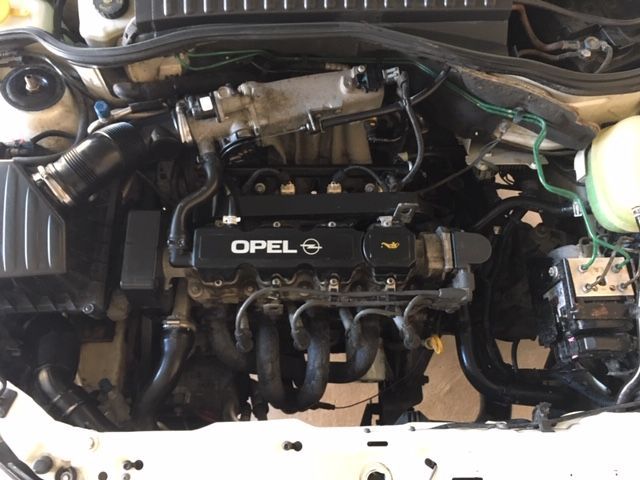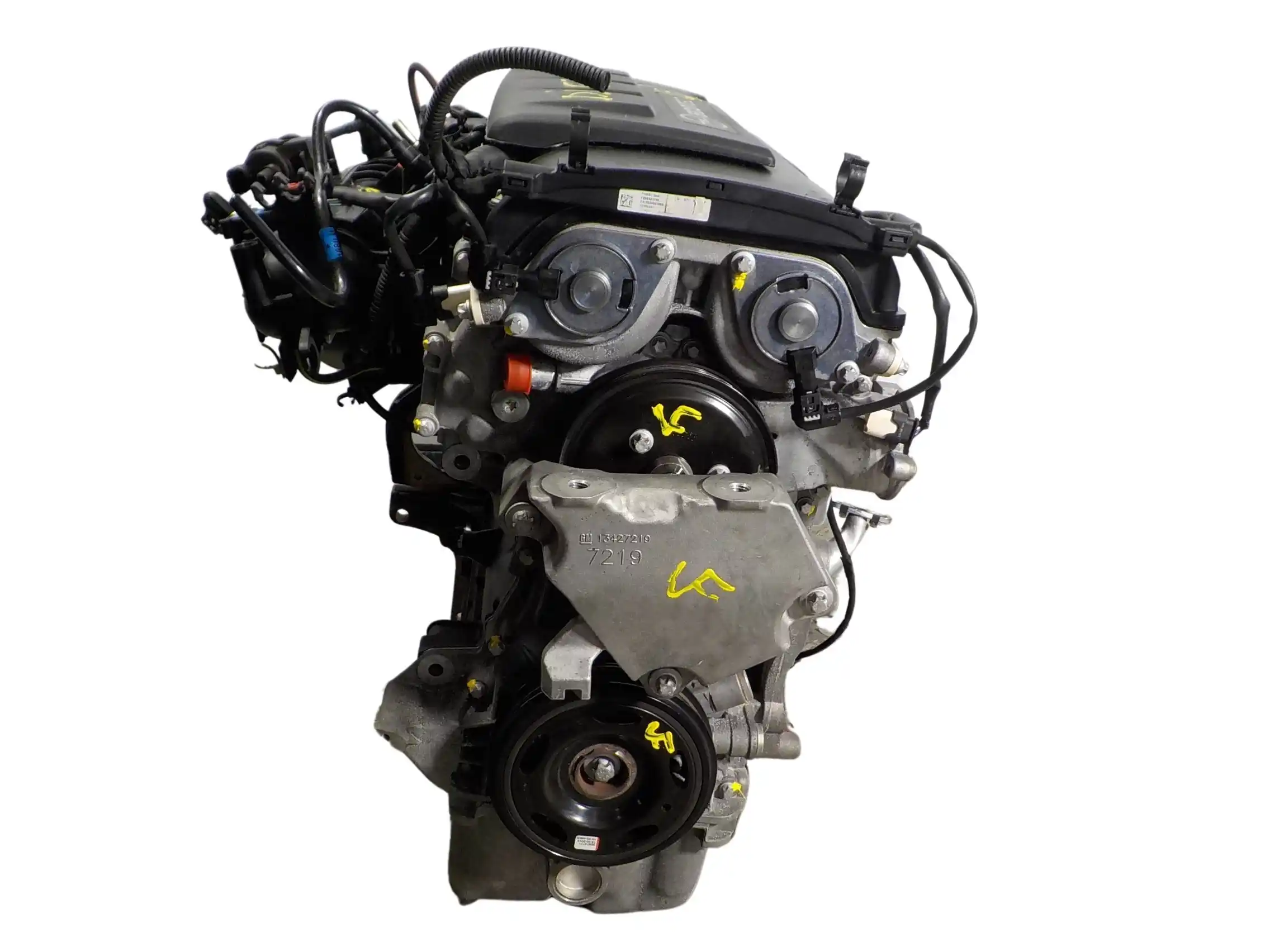Engine Purchasing Professional Tips on Choosing the Right Engine for Your Certain Requirements
Picking the best engine for your certain requirements involves an intricate interplay of factors that go past simple horse power numbers. By diving into the details of power versus effectiveness, evaluating gas ratings, and budgeting for lasting expenses, one can really optimize their engine choice.
Power Vs. Efficiency: Discovering the Balance
When picking an engine, it is important to strike a balance in between power and effectiveness to fulfill your particular demands successfully. Power refers to the engine's capability to create energy for propulsion, determining variables like acceleration, pulling capacity, and general efficiency - Opel Corsa 1.4 Engine Price. On the various other hand, efficiency associates with how well the engine utilizes fuel to produce power, impacting elements such as gas economy and environmental friendliness
Accomplishing the appropriate balance between power and effectiveness is essential due to the fact that an engine that is also powerful might take in excessive gas, resulting in greater operating prices and unnecessary strain on the atmosphere. Alternatively, an engine that prioritizes efficiency over power may lead to slow-moving efficiency, especially sought after circumstances like pulling hefty lots or driving uphill.
To make an informed decision, think about variables such as your regular driving conditions, the intended use of the car, and your personal preferences. By reviewing your top priorities and needs, you can select an engine that strikes the perfect balance between power and efficiency, guaranteeing optimal performance while reducing environmental impact and operating expense.
Understanding Engine Size and Type
To further refine the selection procedure of an engine that strikes the optimum equilibrium in between power and effectiveness, it is vital to explore the complexities of understanding engine size and kind. Engine dimension refers to the total quantity of air and gas that can be pressed with the engine cylinders. It is generally measured in litres or cubic centimeters. Larger engine dimensions typically result in more power result however can likewise result in reduced fuel performance. On the various other hand, smaller sized engine sizes are typically much more fuel-efficient however may compromise some power.
Additionally, engine kind plays an important role in establishing the performance characteristics of an engine. Usual engine types consist of inline engines, V engines, and rotary engines, each with its special advantages and downsides. The engine type impacts factors such as the engine's dimension, weight distribution, and power delivery. Understanding the interplay between engine size and kind is important in choosing an engine that aligns with your certain demands and priorities, whether it be power, performance, or a balance of both.

Consider Your Lorry's Demands
If you are looking for an engine for a durable vehicle that will certainly be used for towing, you will require an effective engine with high torque capacities. On the various other hand, if you are picking an engine for a small automobile primarily made use of for city travelling, fuel efficiency might be an extra essential aspect to take into consideration.
In addition, the terrain on which the automobile will mainly run must influence your engine choice. If you often drive in mountainous or sloping areas, a durable engine with excellent climbing power will certainly be required. Conversely, for level surfaces, a more fuel-efficient engine might suffice. By lining up the engine requirements with your lorry's needs, you can ensure that your lorry operates efficiently and meets your efficiency assumptions.
Examining Fuel Efficiency Scores
Assessing fuel effectiveness rankings is an important aspect of selecting the ideal engine for your vehicle, making sure price financial savings check these guys out and ecological sustainability. Fuel efficiency rankings, normally gauged in miles per gallon (MPG) for gas engines or kilowatt-hours per 100 miles (kWh/100 miles) for electric engines, show just how far a vehicle can take a trip on a details amount of fuel or electricity. Higher MPG or reduced kWh/100 miles worths symbolize much more efficient engines, converting to lowered fuel prices and reduced carbon emissions.
When examining gas efficiency ratings, consider your driving requirements and habits. A very fuel-efficient engine can result in considerable savings over time if you commute long ranges daily. Additionally, contrast various engine alternatives within the same lorry class to determine one of the most affordable choice. Aspects such as engine dimension, weight, aerodynamics, and crossbreed or electric capabilities can all influence gas performance.
Budgeting for Long-Term Expenses
Purposefully intending for long-term expenses is vital when picking an engine, making sure monetary sustainability over the automobile's lifespan. While the initial acquisition rate of an engine is a substantial factor, it is critical to think about the long-term prices connected with maintenance, repair services, and gas intake.
In addition, investigating the availability and expense of substitute components for the selected engine is vital in spending plan planning. Engines with cost effective and readily available components can considerably impact long-term upkeep expenses. Furthermore, considering the engine's longevity and expected life expectancy can aid stay clear of unforeseen substitute prices in the future. By meticulously budgeting for these lasting costs and factoring them into the decision-making procedure, individuals can choose an engine that not only fulfills their other instant needs however likewise stays affordable throughout its life-span.
Conclusion
Finally, choosing the best engine for your details requirements calls for stabilizing power and efficiency, recognizing engine size and type, considering your vehicle's demands, reviewing gas effectiveness ratings, and budgeting for long-term expenses. By thoroughly thinking about these elements, you can guarantee that you pick an engine that fulfills your needs and supplies optimum efficiency for your car.
To better fine-tune the option procedure of an engine that strikes the optimal equilibrium in between power and efficiency, it is necessary to dig right into the ins and outs of recognizing engine size and kind. Engine size refers to the overall volume of air and fuel that can be pushed through the engine cylinders. Common engine types include inline engines, V engines, and rotating engines, each with its special advantages and drawbacks. Comprehending the interaction between engine size and kind is crucial in selecting an engine that straightens with your particular needs and concerns, whether it be power, performance, or a balance of both.
